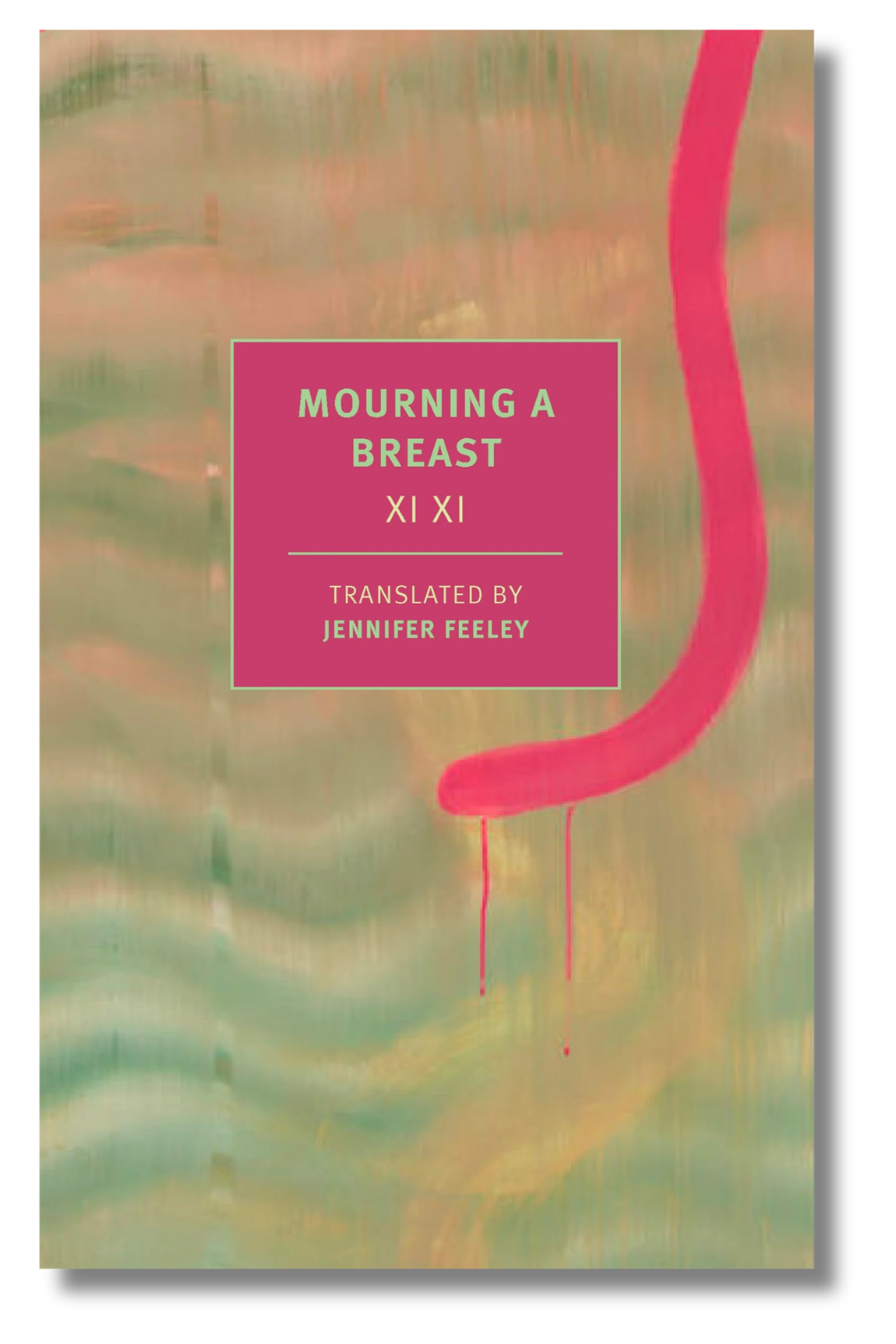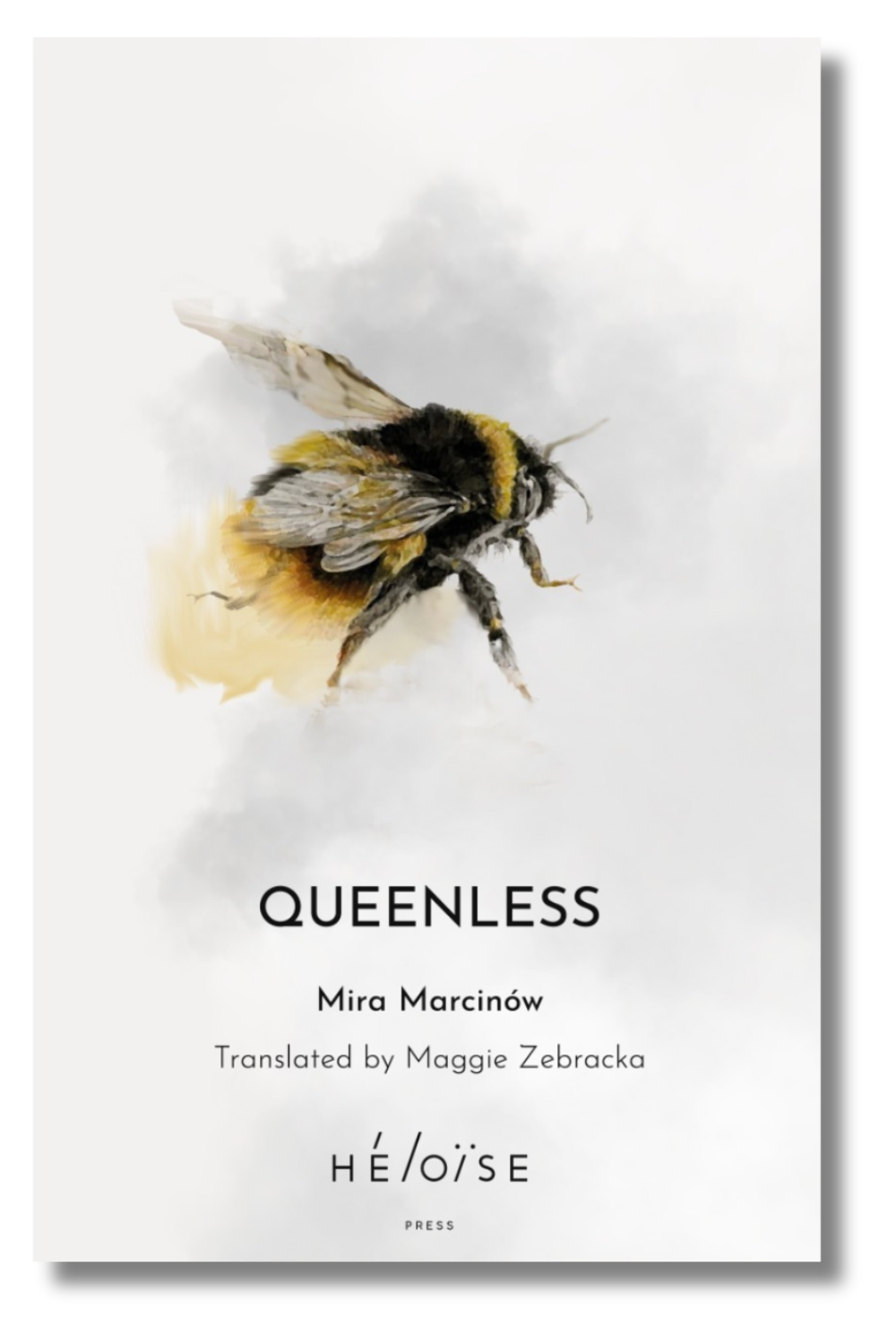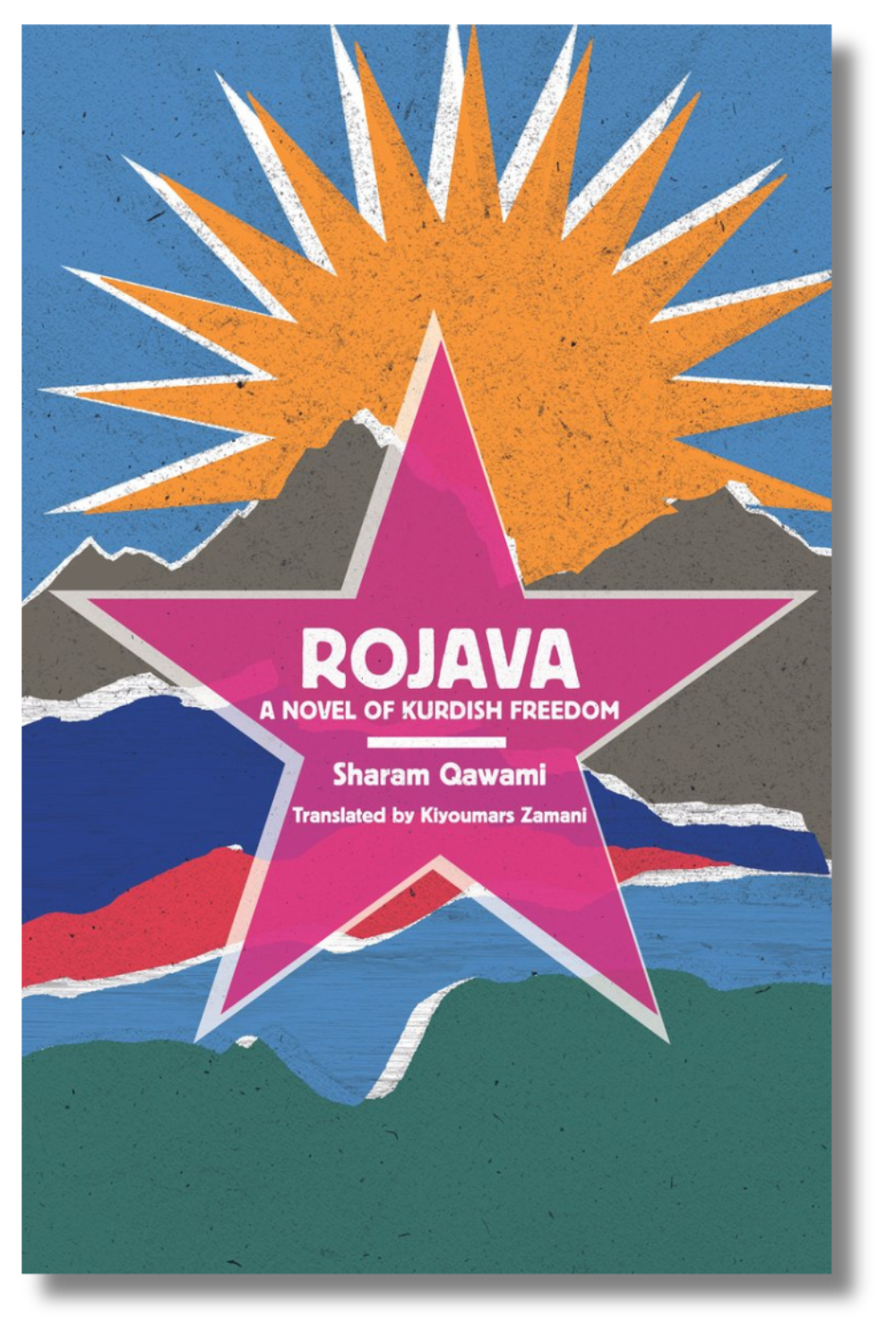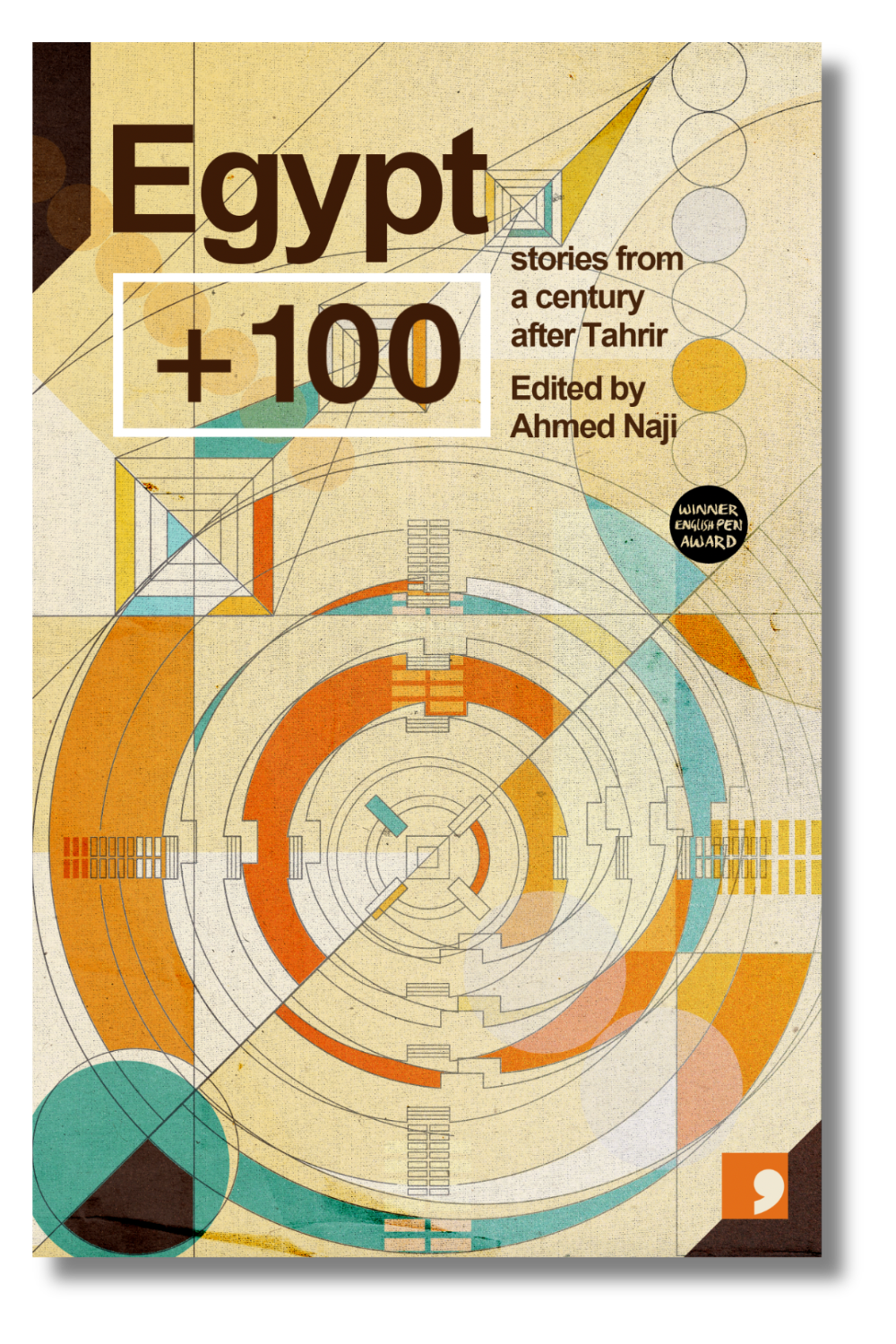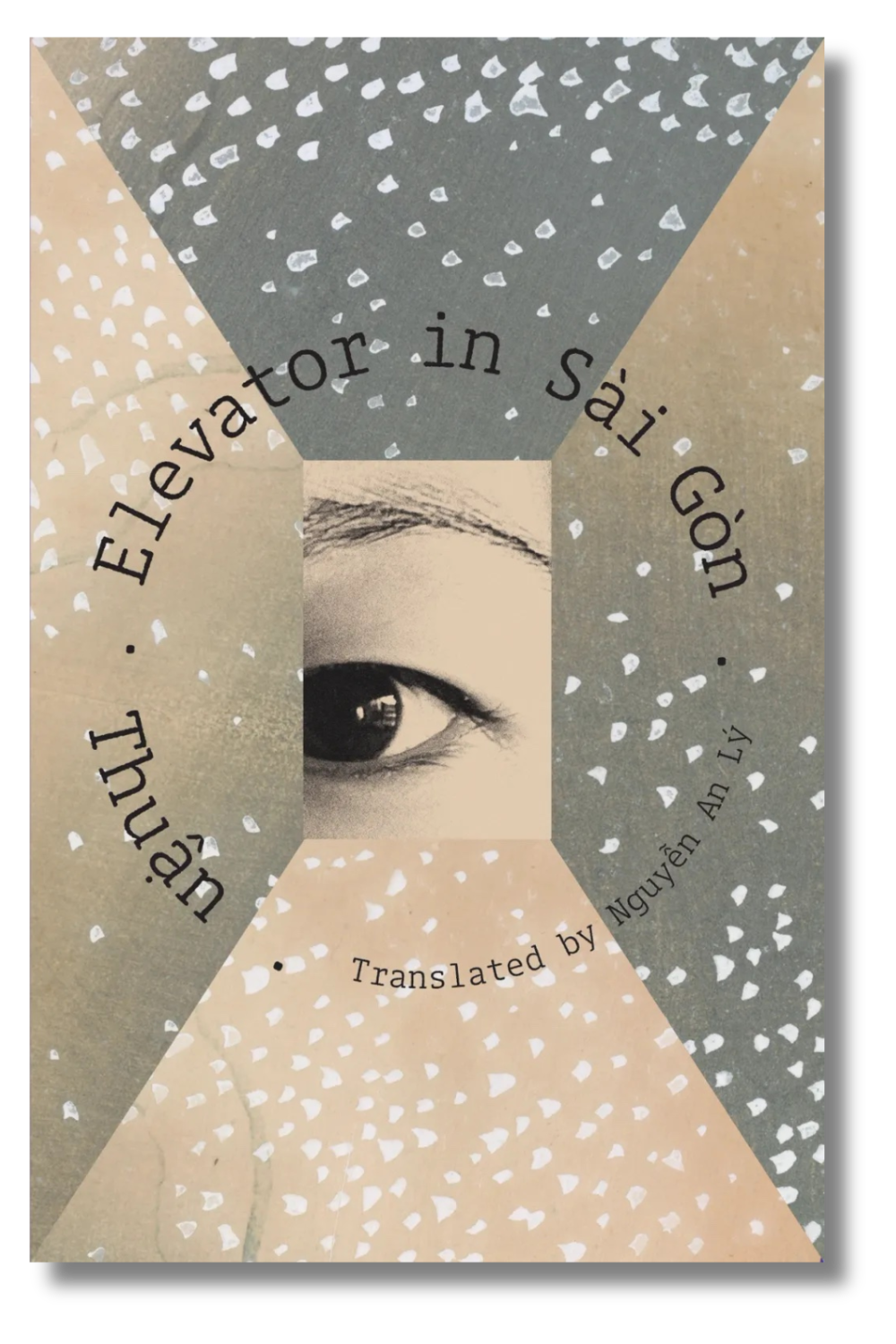From NYRB Classics | Mourning a Breast by Xi Xi, translated from the Chinese by Jennifer Feeley | Fiction | 320 pages | ISBN 9781681378220 | US$18.95
What the publisher says: “In 1989, the acclaimed Hong Kong writer Xi Xi was diagnosed with breast cancer. Her semi-autobiographical novel Mourning a Breast is a disarmingly honest and inventive account of the author’s experience of a mastectomy and of her subsequent recovery.”
What Mimi Cheng at The Washington Post says: “Xi Xi’s intellect and candor find kinship in the cancer narratives of Susan Sontag and Audre Lorde, but her style most closely anticipates that of Anne Boyer, who reckoned with a particularly aggressive form of breast cancer in The Undying, which won a Pulitzer Prize in 2020.”
What I say: This book, as they say, contains multitudes. Had Xi Xi simply written a straightforward account of her breast cancer diagnosis and subsequent treatment, it likely would have been a memorable read on its own. Mourning a Breast goes to a number of disparate places, from riffs on other works of literature to puckish asides offering directions to readers who’d prefer to skip around. And the way that Xi Xi’s ruminations on translation circle back around to the illness that led to this book’s existence is one more act of bravura in a book that abounds with them.
From Heloise Press | Queenless by Mira Marcinów, translated from the Polish by Maggie Zebracka | Fiction | 256 pages | ISBN 9781739751593 | UK£12.95
What the publisher says: “Playing with form and content, this is a fierce story about the desire to live; about great, crazy, and greedy love between a mother and a daughter. Marcinów finds her own language to describe loss and extreme intimacy: trancelike, strong, witty, yet trembling, cruelly honest, full of tenderness and longing.”
What The Bobsphere says: “Using children’s poems and songs plus the scattered memories, both funny and tragic, Mira Marcinów manages to create a whole picture of the struggle her main protagonist is going through. Queenless is a touching book which hits at the core. Anyone who has lost a parent or a guardian will be able to relate to the pain that goes through the book’s narrator.”
What I say: The starkly arranged prose of Queenless makes for an immersive reading experience—first in the memories that its narrator summons up, and then in the feeling of grief she expresses in the wake of her mother’s death. There’s also something almost aphoristic about some of the passages here; consider “What are mothers like? Mothers are tired. Especially old mothers, dead mothers, and young mothers.”
From Scribner | Pink Slime by Fernanda Trías, translated from the Spanish by Heather Cleary | Fiction | 240 pages | ISBN 9781668049778 | US$24.00
What the publisher says: “In a city ravaged by a mysterious plague, a woman tries to understand why her world is falling apart. An algae bloom has poisoned the previously pristine air that blows in from the sea. Inland, a secretive corporation churns out the only food anyone can afford—a revolting pink paste, made of an unknown substance.”
What Tony’s Reading List says: “Pink Slime is beautifully done, a clinical, mesmerizing account of a city paralyzed by an unforeseen catastrophe, and of how life goes on amidst the chaos. . . . Pink Slime is a wonderful read, an enigmatic, intriguing novel blending thoughts on motherhood, ecological disaster, and the end of the world.”
What I say: With echoes of J. G. Ballard’s early work, Pink Slime does a fine job of evoking everyday life in a city that’s slowly imploding. This is a novel that never lets you forget the experience of living in a body, with all its unstated benefits and subtle horrors. Pink Slime also accomplishes the impressive feat of combining psychological tension, body horror, and flat-out dystopia.
From Common Notions | Rojava: A Novel of Kurdish Freedom by Sharam Qawami, translated from the Kurdish and German by Kiyoumars Zamani | Fiction | 400 pages | ISBN 9781945335105 | US$22.00
What the publisher says: “A young Kurdish woman discovers a commitment to liberation, both personal and collective, through a harrowing journey to Rojava and the heart of armed struggle. . . . Rojava is the story of people living and fighting shoulder to shoulder who have decided, regardless of the present world order and in spite of the odds stacked against them, to build a society free from discrimination, based on shared dignity and collective autonomy.”
What I say: What does it mean to leave a comfortable life and commit oneself to a cause? The narrator of Rojava follows the same path as her father to war, both ruminating on her family’s history and getting to know her cohorts in fighting Daesh. This is a novel of war and political debate, but it’s also a book about the lives led by the people inspired to defend Kurdistan; though its conflict is very contemporary, the way that different personal narratives share space gives Rojava a timeless feel.
From Comma Press | Egypt + 100: Stories from a Century after Tahrir, edited by Ahmed Naji, translated from the Arabic by Majd Abu Shawish, Paul Starkey, Maisa Almanasreh, Robin Moger, Andrew Leber, Elisabeth Jaquette, Mohammed Ghalayini, Raphael Cohen, Raph Cormack, Mayada Ibrahim, Basma Ghalayini, and Rana Asfour | Fiction | 176 pages | ISBN 9781912697700 | UK£10.99
What the publisher says: “Egypt + 100 poses a question to twelve contemporary Egyptian authors: what might your country look like in the year 2111—exactly a century after the failed Tahrir Square Revolution? . . . Covering a range of styles—from SF noir, to supernatural horror, to political farce—these stories use the blank canvas of the future to process recent traumas that Egypt has yet to come to terms with.”
What M. Lynx Qualey at ArabLit says: “Taken together, these twelve stories, crafted in markedly different styles, create a portrait of the anxieties of different contemporary Egyptian writers: of the loss of community and shared memory; of extremes of surveillance and control; of the devastating potential of climate change; and of future versions of Egyptian cities that don’t leave room for people to gather, to protest, and to forge new demands for the future.”
What I say: In this anthology’s introduction, editor Ahmed Naji reckons with the juxtaposition of the real and the science fictional, writing, “What could literary science fiction hope to achieve against a totalitarian regime that took its real-world claims straight out of the SF playbook?” The stories that follow serve as responses to that question. The flooded cities of Michel Hanna’s “Encounter with the White Rabbit” and the virtual worlds of Nora Nagi’s “Unicorn2512” are two particularly memorable entries here. And in the book’s most dazzling moment, Ahmed El-Fakharany imagines a twenty-second-century Cairo that’s been transformed into a surreal interpretation of ancient Rome.
From New Directions | Elevator in Sài Gòn by Thuận, translated from the Vietnamese by Nguyễn An Lý | Fiction | 192 pages | ISBN 9780811238540 | US$16.95
What the publisher says: “Still banned in Vietnam, Elevator in Sài Gòn is a thrilling novel combining elements of the detective thriller, historical romance, postcolonial ghost story, and a scathing satire of life in a communist state.”
What Mathilde Montpetit at The Berliner says: “Thuận is a clear-eyed chronicler of the French empire and its Vietnamese afterlives: for English-language readers, accustomed as we are to portrayals dominated by the lens of the American-led war, Elevator in Sài Gòn is a thrilling change of orientation.”
What I say: The novel Elevator in Sài Gòn has plenty of memorable qualities, but perhaps the most understated is how what begins as a familial drama gradually broadens its scope. By the novel’s end, what began as a story of loss and grief has grown to encompass everything from Cold War drama to an oblique thriller set against a Parisian backdrop.
Looking for more reading suggestions? Check out Tobias Carroll’s recommendations from last month.
Disclosure: Words Without Borders is an affiliate of Bookshop.org and will earn a commission if you use the links above to make a purchase.
Copyright © 2024 by Tobias Carroll. All rights reserved.









